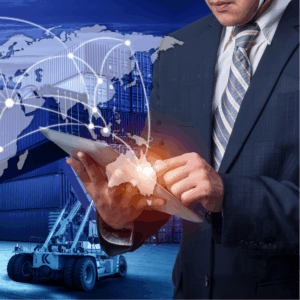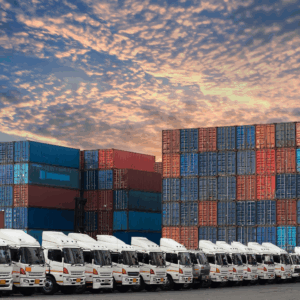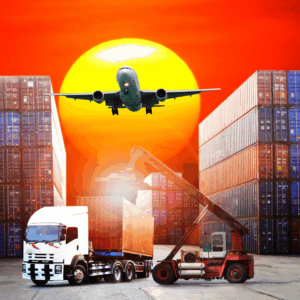 In today’s increasingly complex global logistics environment characterized by disrupted supply chains, rising costs, shifting regulations, and growing demands for visibility, the decision between dedicated freight services and managed transportation has become a critical choice for logistics management teams. Selecting the right model not only impacts operational efficiency but also shapes business resilience. At the same time, tools like instant online freight quotes are redefining how freight companies plan, quote, and execute shipments across local and international networks. This blog examines both strategies in depth, combining technical insights, recent studies, and emerging technologies such as digital freight forwarding and logistics automation platforms.
In today’s increasingly complex global logistics environment characterized by disrupted supply chains, rising costs, shifting regulations, and growing demands for visibility, the decision between dedicated freight services and managed transportation has become a critical choice for logistics management teams. Selecting the right model not only impacts operational efficiency but also shapes business resilience. At the same time, tools like instant online freight quotes are redefining how freight companies plan, quote, and execute shipments across local and international networks. This blog examines both strategies in depth, combining technical insights, recent studies, and emerging technologies such as digital freight forwarding and logistics automation platforms.
Dedicated Freight Services: Control, Consistency, and Performance Assurance
The dedicated freight services model involves the exclusive allocation of transport assets such as trucks, trailers, and drivers to a single customer. This setup ensures consistent capacity and a high level of control over the transport process, making it ideal for companies with steady shipping flows, strict schedules, or time-sensitive cargo. According to Descartes’ Transportation Benchmark Survey, dedicated or private fleets are widely adopted in North America due to their reliability during capacity shortages and spikes in demand.
This freight service model is fundamental in industries such as pharmaceuticals, automotive, and food, where precision is crucial. It provides freight and shipping with fixed routes, trained drivers, and customized vehicles for specific types of goods. However, it comes at a cost: long-term contractual commitments and a fixed-cost structure, even during periods of low demand.
From a logistics services perspective, the primary operational risk lies in the inability to adapt to volume fluctuations or route changes. Many companies operating dedicated fleets also face digitalization challenges, as their internal infrastructure often lacks tools such as freight technology, including Transportation Management Systems (TMS), automated quoting, and integrated tracking. This technological gap limits real-time access to online shipping rates, forcing teams to rely on spreadsheets and email-based communication.
This underscores the need to complement dedicated fleet models with digital tools. Integrating APIs, predictive visibility, and platforms like Exfresso enables companies to compare their dedicated fleet rates with current instant rates and make data-driven decisions. By doing so, freight companies can maximize the use of their dedicated assets while still capitalizing on opportunities from the digital marketplace.
Managed Transportation: Scalability, Automation, and Smarter Decision-Making
Managed transportation involves fully or partially outsourcing the planning, execution, and optimization of freight operations to an external logistics partner. Unlike dedicated services, this model doesn’t rely on owned assets but on a vast network of carriers coordinated through advanced technology and integrated workflows.
This model is best suited for companies that deal with irregular volumes, multiple modes of transportation, or frequent regulatory changes. According to the same Descartes study, managed services are being adopted by businesses looking to combine operational control with scalability, without committing to long-term infrastructure investments. One of the key benefits is access to advanced technology capabilities, including real-time visibility, dynamic route planning, automated invoice auditing, and compliance tracking.
Advanced TMS platforms enable scenario simulations, tariff adjustments in response to regulatory changes, and the monitoring of carrier performance. Some providers also utilize machine learning to detect delivery anomalies, predict service failures, or identify opportunities for load consolidation. These features are especially useful in international freight transportation, where documentation and tax obligations vary by country.
Managed transportation is also ideal for businesses needing agility. In volatile environments such as e-commerce or electronics manufacturing, the ability to reconfigure logistics networks in real-time is crucial. In fact, the Global Sea Freight Business Digital study concluded that operational visibility is a higher strategic priority than cost reduction.
Platforms like Exfresso, built by ExFreight, allow users to quote, book, and track shipments across air, ocean, and ground with a single click. Access to instant online freight quotes integrated with customs compliance tools and data validation has been a game-changer for customers previously reliant on manual operations. This level of automation transforms the freight provider into a strategic partner, not just a carrier.

Instant online freight quotes have become a cornerstone of the digital logistics ecosystem. These tools allow users to input shipment details, such as origin, destination, weight, and dimensions, and receive multiple competitive rates in seconds, along with transit times, coverage, and required documentation.
Thanks to these platforms, the time between quote request and booking has drastically decreased, eliminating long email threads, phone calls, and back-and-forth negotiations. They also provide total transparency by breaking down all charges, including base rates, fuel surcharges, handling fees, and value-added services. This enables comparison of online shipping quotes from multiple carriers and supports decision-making based on cost, speed, and service level.
For dedicated freight services, these tools are helpful in benchmarking internal fleet pricing against market conditions. For instance, when excess capacity exists, real-time market data can indicate whether outsourcing specific lanes may be more cost-effective through platforms offering the best freight rates. In managed transportation, these quoting tools are often embedded into the TMS itself, automating carrier selection based on predefined rules or AI-driven logic.
This tech evolution reflects a structural shift in the logistics industry. According to the TOE (Technology–Organization–Environment) framework, the adoption of logistics tech is driven not just by availability but also by regulatory environments, competitive pressure, and internal capabilities. Businesses investing in freight technology are not only gaining efficiency but also unlocking competitive advantages through faster, more scalable, and more resilient decision-making.
Frequently Asked Questions
When is the deadline to file a damage claim?
- Trucking shipments: Damage claims must be submitted within 60 days of delivery; lost freight claims must be submitted within 90 days; concealed damage must be reported within 48 hours.
- Ocean shipments: Written notice must be given before or at delivery, or within 3 days if damage is not apparent. Legal action must be filed within one year.
- Air shipments: Damage claims must be filed within 14 days of receipt; for non-delivery, within 120 days of the air waybill date.
- Small parcel shipments: Intent to file must be received within 14 days of dispatch, and a formal claim must be received within 28 days of dispatch.
What are duties and taxes?
Customs duties are tariffs placed on imported goods to protect the local economy. Taxes, such as VAT or sales tax, vary from country to country. Some collect taxes at import, while others collect them at the final sale. For example, a company may pay 20% tax upon import, then charge the same to the end buyer and file a return on the difference. ExFreight helps estimate these costs upfront.

Customs entries can be amended within about 7 days of initial filing. After duties are paid, amendments are allowed for up to 300 days. Refunds can take up to 6 months and are only issued to the importer of record. Customers are advised to review their duty and tax bills in Expresso and report any discrepancies promptly.
Navigating modern logistics challenges requires choosing the right strategy, whether dedicated freight services or managed transportation, without viewing them as mutually exclusive. Dedicated fleets offer consistency and control, making them ideal for stable supply chains. Managed services bring flexibility, automation, and adaptability for complex or global operations.
The key lies in knowing when to apply each model and how to amplify their effectiveness with tools like instant online freight quotes, which provide not only cost visibility but also faster, more intelligent decision-making. ExFreight, through platforms like Exfresso, represents this modern paradigm that blends operational excellence with digital intelligence.
In today’s digital logistics era, selecting the right model and technology can be the difference between a resilient supply chain and one that fails under pressure. Logistics is no longer just about moving freight; it’s about moving intelligence.





Leave A Comment
You must be logged in to post a comment.